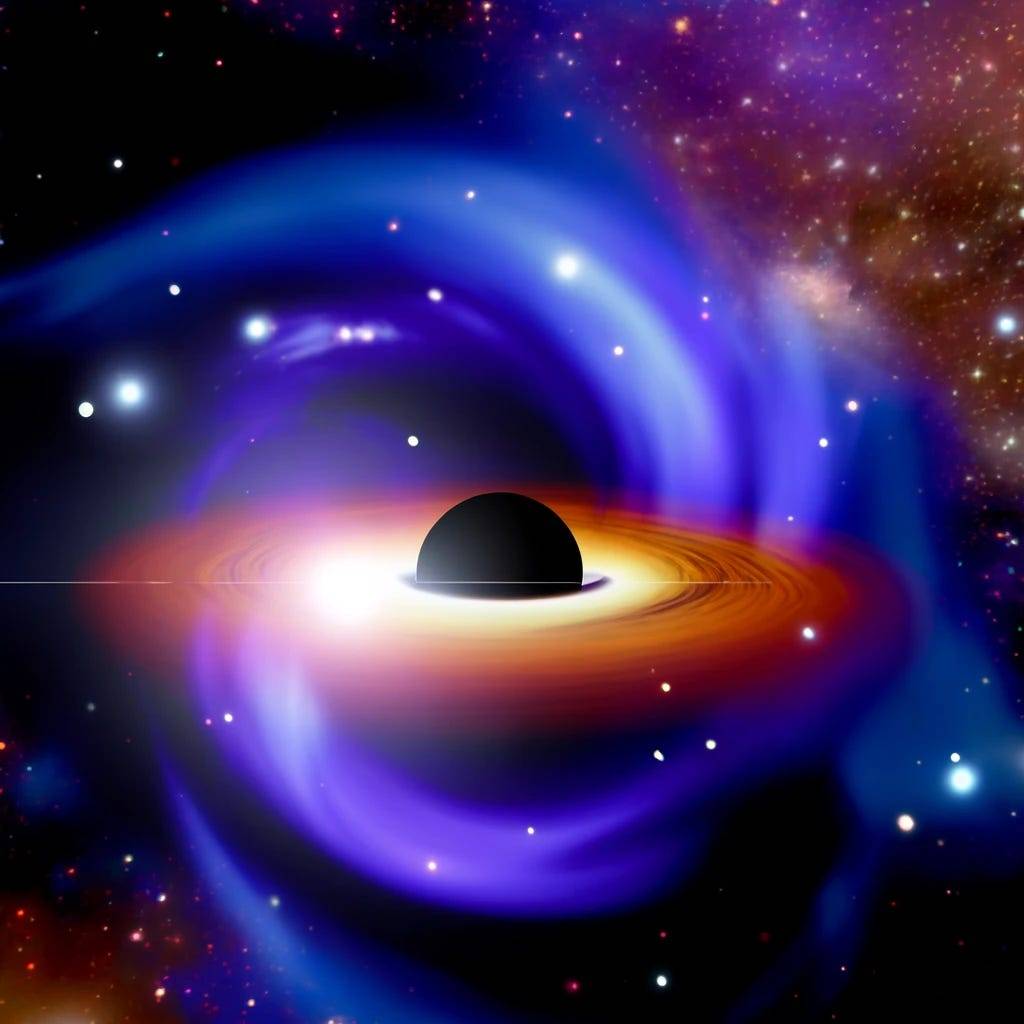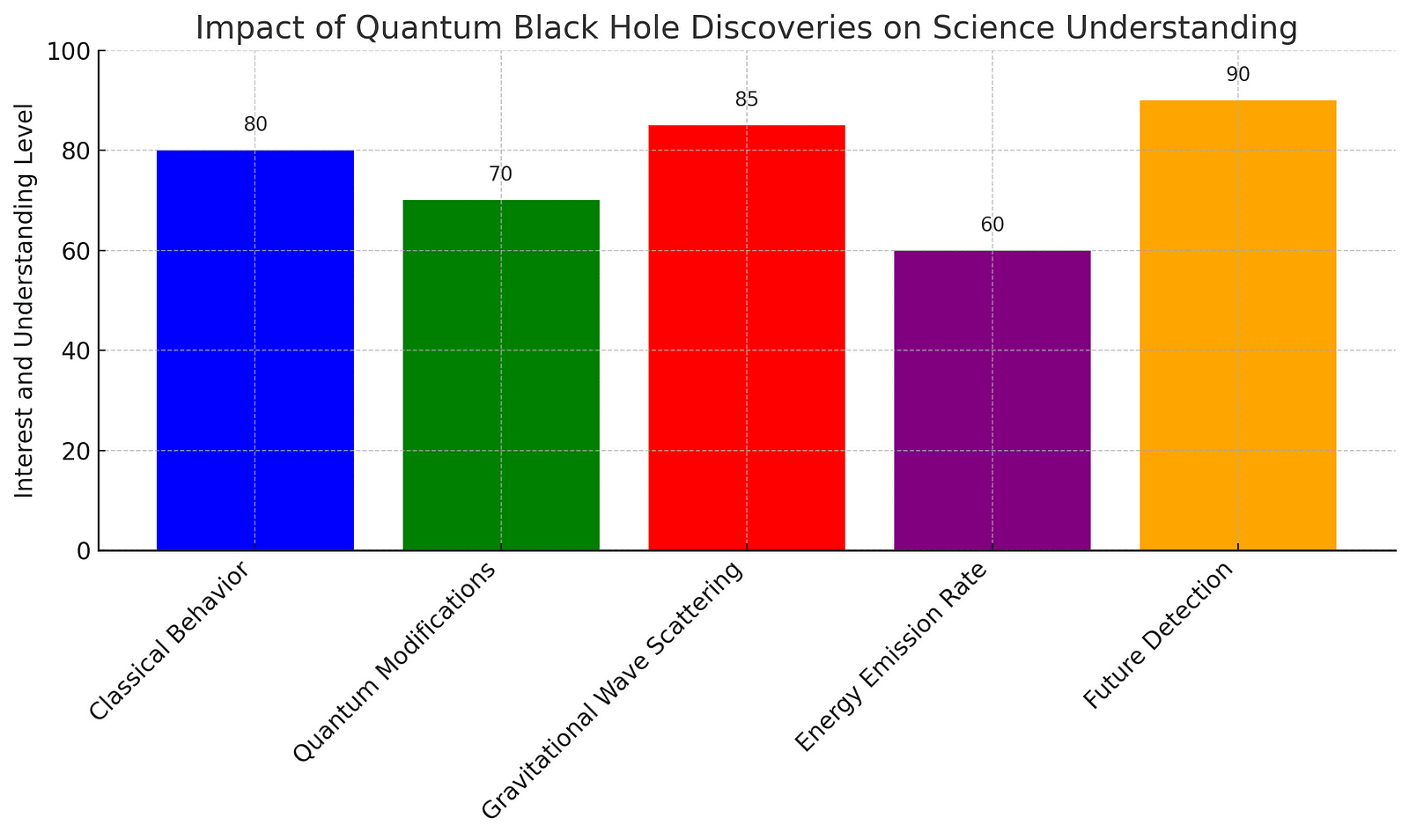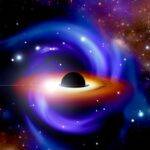
Imagine a universe where black holes, the colossal space-time vacuums formed by the gravitational collapse of massive stars, behave unlike anything predicted by classical physics. In the quantum realm, black holes could potentially challenge our understanding of physics at its most fundamental level. A new paper dives into the exploration of gravitational wave signals that might reveal these quantum interactions. Gravitational waves, ripples in the fabric of space-time caused by some of the most violent and energetic processes in the universe, offer a unique window into the elusive behavior of black holes at quantum scales.
The Quantum Mechanics of Black Holes
Quantum mechanics and general relativity, two pillars of modern physics, stand in stark contrast when it comes to black holes. The quantum behavior of black holes leads to phenomena such as Hawking radiation, which posits that black holes can emit radiation — a direct challenge to the notion that nothing can escape a black hole’s event horizon. The implications of this theory extend to the so-called “information paradox,” a fundamental conflict between quantum mechanics and general relativity that questions the fate of information swallowed by black holes. By examining the changes in the rate of energy emission from black holes through gravitational waves, scientists can probe these quantum effects.
Gravitational Waves as a Quantum Probe
The study highlighted in the paper revolves around the potential modifications to the scattering of gravitational waves off black holes. These modifications could stem from the unknown quantum aspects of black holes. By parameterizing these changes, scientists can bridge theoretical physics with observable phenomena, turning gravitational waves into a tool for testing the presence of quantum interactions. This approach doesn’t just alter our understanding of black holes; it revolutionizes how we verify the limits of our physical theories.
Let’s take a visual journey into the complexities of black holes and their quantum secrets. The following graph showcases how different aspects of this intriguing topic capture our interest and enhance our understanding, particularly among explorers like you.

Observing the Unseen
Through detailed theoretical models and predictions, the paper discusses how future gravitational wave detectors like LISA (Laser Interferometer Space Antenna) could observe these minute quantum signatures. By analyzing the gravitational waves emitted by orbiting bodies around black holes, astronomers can detect deviations in expected wave patterns, potentially pointing to quantum gravitational effects near black holes. This method represents a safe, indirect way to study black holes, which remain some of the most mysterious objects in the universe.
Future Horizons
The ongoing advancements in gravitational wave astronomy could soon provide the necessary sensitivity to detect these small quantum effects. As we refine our observational techniques and enhance our theoretical models, the elusive quantum nature of black holes might finally unfold. This research not only paves the way for new physics but also challenges the boundaries of what we consider observable, merging theoretical predictions with empirical science.
Black Holes Emit Radiation
Contrary to their classic depiction as ultimate voids, black holes can emit radiation, challenging our understanding of these cosmic giants.
Gravitational Waves as Cosmic Messengers
Gravitational waves travel across the universe, carrying information about their origins, including the massive black holes they often emanate from.
Quantum Effects at Astronomical Scales
Quantum phenomena are not limited to the microscopic world. The quantum mechanics of black holes suggests that quantum effects can operate at the grandest scales.
Testing Relativity
The study of gravitational waves provides a real-time laboratory for testing Einstein’s general relativity and its predictions about the warping of space-time by massive objects.
New Horizons in Astronomy
Gravitational wave astronomy is a burgeoning field that promises to unlock mysteries of the cosmos that are invisible to traditional telescopes.
Conclusion
As we stand on the brink of new discoveries, the research into the quantum aspects of black holes through gravitational waves holds not just scientific significance but an inspiring promise for future explorers of the universe. These observations might one day answer some of the biggest questions in physics, shedding light on the darkest corners of our universe. For people intrigued by the mysteries of space, the journey into black holes and gravitational waves is not merely about understanding what is known, but about discovering what seems unimaginable. This is the frontier of human knowledge, a beacon calling to the curious and brave.
About Disruptive Concepts
https://www.disruptive-concepts.com/
Welcome to @Disruptive Concepts — your crystal ball into the future of technology. 🚀 Subscribe for new insight videos every Saturday!







